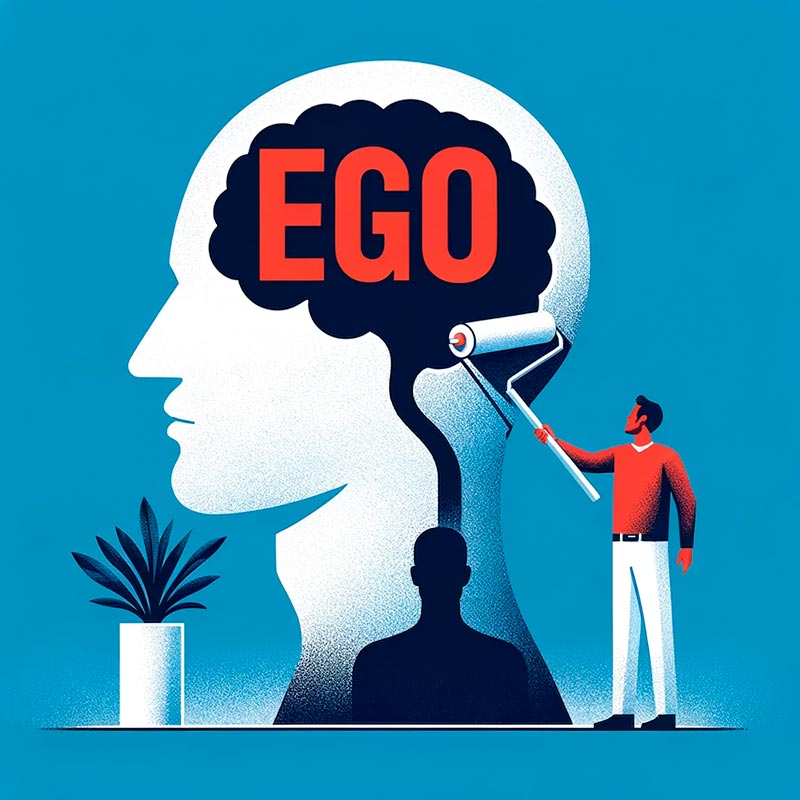The teachings of the Bahá’í Faith offer profound insights into the nature of humanity, emphasizing the importance of spiritual development while navigating the complexities of ego and narcissism. The interplay between these concepts and our relationship with the animal world provides a fertile ground for reflection. As we explore this topic, one might pose a curious question: How can understanding our ego through the lens of animal instincts guide us toward a more harmonious existence? The challenges presented by ego and narcissism compel us to examine our inherent motivations and their ramifications on both personal and collective levels.
The Bahá’í teachings advocate for a balanced perspective that transcends the self-centered tendencies often linked to ego. Central to this philosophy is the idea that individuals should strive to elevate themselves beyond base instincts. The spiritual journey involves shedding layers of egoistic behavior that can manifest in narcissistic tendencies, which often impede genuine connection with others. Instead of viewing ourselves as isolated beings, the teachings urge us to embrace the interconnectedness of all life forms, including our animal counterparts, thereby fostering a sense of unity.
Examining the concept of ego, it is necessary to understand its roots in human psychology. At its core, the ego serves as a protective mechanism, developed through experiences and social interactions. In many respects, it mirrors the behavior observed in the animal kingdom, where survival often depends on instincts governed by the primal drive for dominance, territory, and reproduction. Animals exhibit traits of narcissism in their pursuit of survival, which, in some contexts, can be deemed essential. Nonetheless, the Bahá’í perspective prompts a reevaluation: Can our human capacity for rational thought and emotional intelligence elevate us beyond these instinctual behaviors?
Narcissism, characterized by an inflated sense of self-importance, not only hampers individual relationships but can choke the social fabric of communities. It often leads to a superficial existence, where deeper connections are sacrificed on the altar of self-aggrandizement. In the animal realm, narcissism is compounded by the instinctual drive for physical dominance and competitive behavior. Yet, there exists a nuanced aspect of animal behavior that contrasts with human narcissism – cooperation. Many species exhibit altruism, suggesting a complex ecological balance that defies mere egoistic intent.
To illustrate this, consider the remarkable social structures within a wolf pack. Each member plays a vital role, fostering cooperation and mutual support despite the hierarchy that inevitably arises. This dynamic presents a fascinating parallel to human society. In contemplating the lessons drawn from the animal world, we encounter a pivotal question: Do we prioritize our individual achievements at the expense of communal welfare? The Bahá’í teachings remind us that our true success is intrinsically linked to the upliftment of others.
The spiritual development emphasized in Bahá’í doctrine invites introspection, challenging us to confront our egoistic impulses. One might inquire how such acknowledgment can transform our interactions within society. The process demands humility, introspection, and the recognition of interconnectedness. When individuals engage in this reflective practice, a profound transformation occurs. This metamorphosis breeds empathy and compassion, allowing us to foster genuine relationships and strengthen communal bonds.
Moreover, the concept of service to humanity is at the heart of Bahá’í teachings, serving as an antidote to ego-driven narcissism. Engaging in acts of service shifts focus from self-centered pursuits to collective welfare. As one immerses in the service to others, the ego diminishes, revealing a deeper purpose. This concept resonates through the lens of the animal kingdom, where species often rely on collective effort for survival and thriving. The ability to recognize and support the needs of others is an innate trait that transcends the primal instincts of ego and narcissism.
As we consider the implications of Bahá’í teachings on ego and its relationship to both human and animal behaviors, it becomes evident that transformative change is feasible. For committed practitioners, the call to action is clear: acknowledge the shadows of egoism and strive toward a life marked by humility and altruism. This ongoing battle against self-centeredness invites a recalibration of values, prompting individuals to align with a higher purpose that transcends the ego’s confines. In light of the communal struggles that beset humanity, the Bahá’í teachings stand as a beacon of hope, doctrine guiding us toward unity and collective elevation.
The interplay between ego, narcissism, and the animal kingdom elucidates vital lessons for nurturing the human heart. To fully engage with these teachings requires a commitment to examining our motivations, consciously choosing paths that align with the greater good, and fostering a culture of compassion. As we embrace this transformative journey, one may reflect on the wisdom imparted through the analogy of animal societies: the strength of unity and cooperation ultimately triumphs over the isolation of narcissism. In this collective awakening, the human heart can flourish, learning to love and serve others unconditionally.
